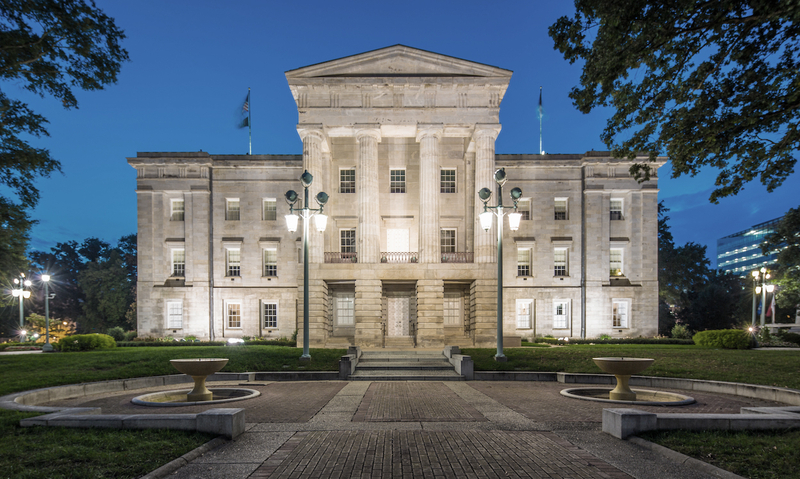NC Supreme Court to rehear elections cases this week


The state Supreme Court this week is going to take the rare step to re-hear two recently decided elections cases – one on redistricting and the other on voter photo identification.
The redistricting case will be heard on Tuesday and the voter ID case on Wednesday.
These cases were decided in December, when Democrats held a 4-3 majority on the court.
The Democrats’ majority opinion found that the Senate map used in the last election was unconditionally partisan and that the state’s voter ID law was written with the “impermissible intent” to discriminate against Black voters.
As a result of the November elections, Republicans now hold a 5-2 majority on the court. Republican justices agreed to Republican legislative leaders’ request to rehear the cases. The Republicans’ lawyers asked the court to withdraw the December opinion focused on the Senate districts and override the February 2022 court decision at its foundation. The February 2022 decision declared the House, Senate and congressional districts unconstitutional partisan gerrymanders and required all three to be redrawn.
Republican lawmakers contend, and Republican justices agreed in their dissents last year, questions of redistricting with partisan intent are outside the purview of courts.
The voting rights groups and voters backed by National Redistricting Foundation won the gerrymandering cases in the state Supreme Court last year. Their court brief asks the Supreme Court to leave the redistricting decisions alone, citing the legal principle that says courts should stick with previous decisions when the facts haven’t changed.
The Republicans’ claim that redistricting is immune from judicial review “fundamentally misunderstands the judiciary’s role and the separation of powers under the Constitution,” the voting rights groups’ lawyers wrote.
After they lost in state court, Republicans appealed to the US Supreme Court. Based on the Elections Clause in the US Constitution, state courts have no say in how legislators decide to conduct federal elections, Republicans argued. That would mean that state courts can’t tell the legislature how congressional districts should be drawn.
The case drew national attention, with critics arguing that the “independent state legislature theory” could kill voting rights protections and void partisan gerrymandering bans in state constitutions.
The US Supreme Court heard arguments in the federal case, called Moore vs. Harper, in December.
But the state Supreme Court’s decision to re-hear the redistricting case could nullify the federal court case.
Earlier this month, the US Supreme Court asked the parties in the case for briefs addressing the effect on its jurisdiction of the state court deciding to rehear the redistricting case.








